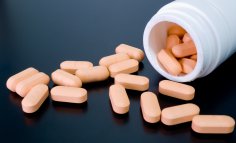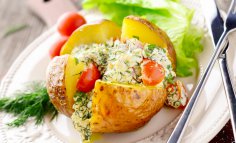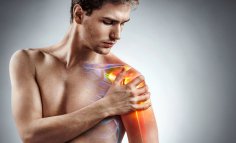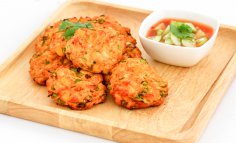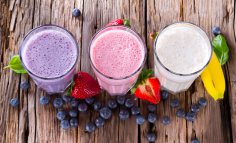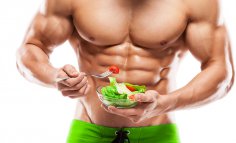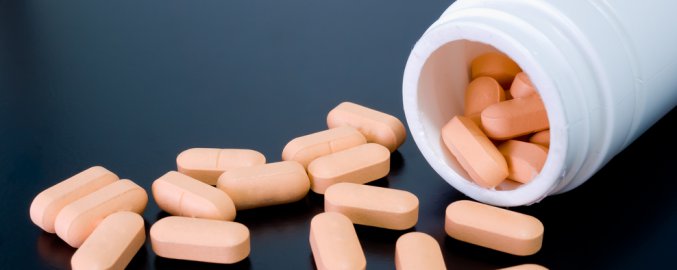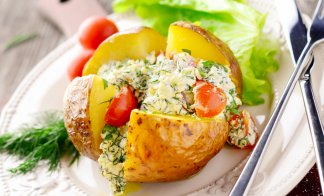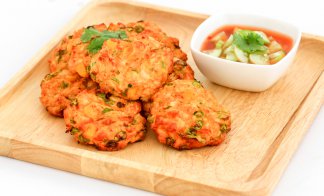har veldig dårlig mat lyst så lurte jeg på om det er for mye med 2 liter melk og 2 bokser kesam om dagen? =130g protein (dette glir jo rett ned)
Tror ikke du trenger å bekymre deg så mye. Man har sett et sammenheng mellom et høyt inntak av melkeprodukter og kreft i prostata og eggestokker (særlig lavfettprodukter) (1), men hvis du samtidig er flink på å spise grønnsaker, fisk/ omega-3, osv, så nuller du nok ut den risikoen mer eller mindre (2).
1. "Recent epidemiological studies have raised concern that high calcium intakes are associated with increased risk of prostate cancer. A large prospective cohort study in the U.S. followed more than 50,000 male health professionals for eight years and found that men whose calcium intake was 2,000 mg/day or more had a risk of developing advanced prostate cancer that was three times higher than men whose calcium intake was less than 500 mg/day and a risk of developing metastasized prostate cancer that was more than four times greater (53). Similar results were observed in a case-control study in Sweden, which compared the calcium consumption of 526 men diagnosed with prostate cancer to that of 536 controls (54). Neither study found calcium intake to be associated with an increased risk of total prostate cancer or non-advanced prostate cancer. More recently, another prospective study of U.S. physicians found that increased intake of calcium from dairy foods was associated with an increased risk of prostate cancer (55). Although this study did not examine supplement use, each 500 mg/day increase in calcium intake from dairy foods was associated with a 16% increase in the risk of prostate cancer (advanced and non-advanced, combined). Most recently, a prospective study in a cohort of 29,133 male smokers, followed for 17 years, found that high calcium consumption (> 1,000 mg/day) was associated with an increased risk for prostate cancer (56). The physiologic mechanisms underlying the relationship between calcium intake and prostate cancer are not yet clear. ...
Not all epidemiological studies have demonstrated an association between calcium intake and prostate cancer. One review reported that seven out of 14 case-control studies and five out of nine prospective cohort studies found statistically significant positive associations between prostate cancer and some measure of dairy product consumption. Of those studies that examined calcium intake, three out of six case-control studies and two out of four cohort studies reported statistically significant associations between prostate cancer and calcium intake (57). However, one Serbian case-control study found increased calcium intake to be associated with a decreased risk of prostate cancer (58). In a meta-analysis of six prospective studies, Gao et al. reported that men with higher daily calcium intakes had a 39% increased risk of developing prostate cancer compared to those with lower intakes; men with higher dairy product intakes had a 11% higher risk of prostate cancer compared to those with lower dairy product intakes (59). ...
Until the relationship between calcium and prostate cancer is clarified, it is reasonable for men to consume a total of 1,000 to 1,200 mg/day of calcium (diet and supplements combined), which is the adequate intake level recommended by the Food and Nutrition Board of the Institute of Medicine (3)."
http://lpi.oregonstate.edu/infocenter/minerals/calcium/index.html
2. "Increasing evidence supports the important role of nutrition in cancer prevention, including prevention of prostate cancer. In this review, we summarize data for some of the most consistently observed dietary associations for prostate cancer incidence, briefly consider possible postdiagnostic effects of nutrition on prostate cancer progression/survival, discuss new but limited data on diet-gene interactions, and comment on current areas of controversy for future research focus. Potential protective dietary elements include tomatoes/lycopene, other carotenoids, cruciferous vegetables, vitamin E, selenium, fish/marine omega-3 fatty acids, soy, isoflavones and polyphenols; whereas milk, dairy, calcium, zinc at high doses, saturated fat, grilled meats, and heterocyclic amines may increase risk. "
J Clin Oncol. 2005 Nov 10;23(32):8152-60.

